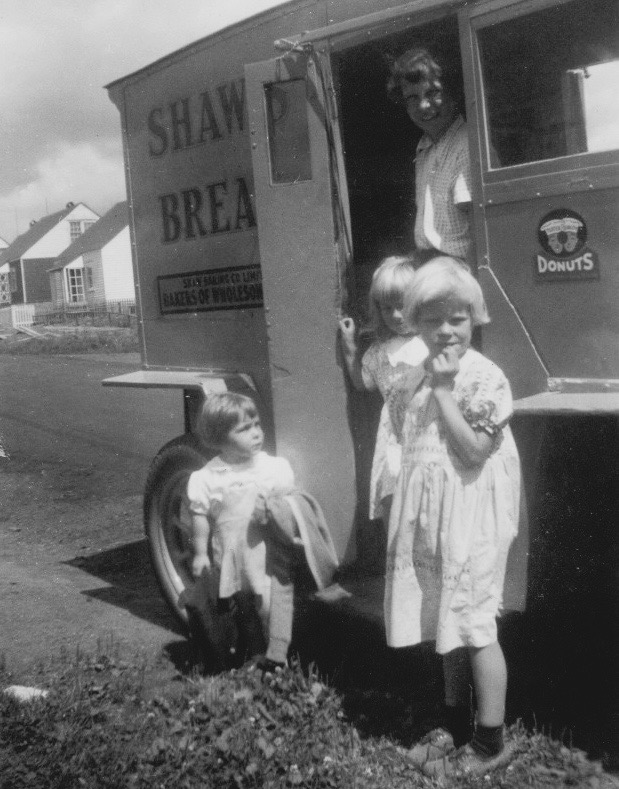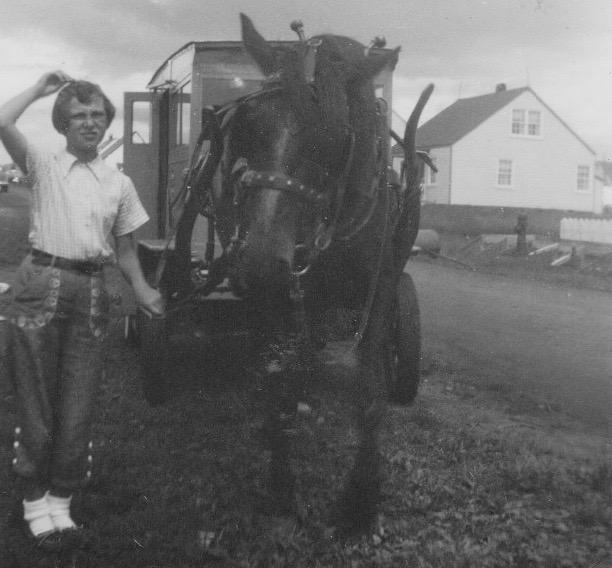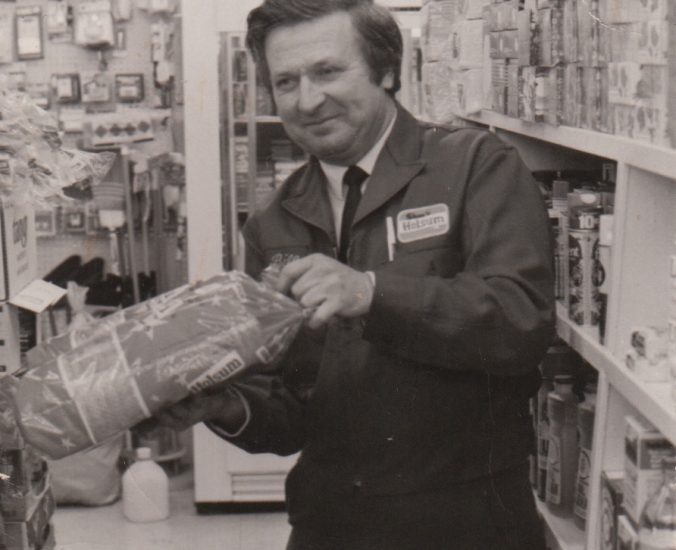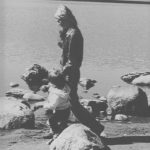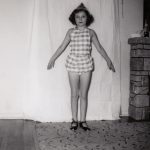I like to work. I like what I do from 9 to 5, Monday to Friday. And I also like what I do outside of that window of time. There are many things about work that I like. But the thing I like to do the most is to serve. I don’t mean serve in the way that a waiter or a clerk or a bell hop would do. I’m talking about something much more generic. Quite simply, I like to help people. To be of service to those around me. This covers a broad spectrum of possibilities because the brush is so wide, making the opportunities for work vast and limitless. There’s no end to what you can do, where you can do it, and who you can do it for. People need help everywhere. This is such an appealing notion. At the end of the day my job title or description is almost incidental. Because when you drill right down to the heart of the matter, what I actually do is help other people do what they do.
According to Bob Dylan we’ve all Gotta Serve Somebody.
Whether it’s the devil or the Lord. Whether they call you Doctor or Chief. Inevitably there’s someone you’re going to serve. I not only accept this to be fact, but I embrace it. Arms wide open. It’s both humbling and gratifying. For me though, it’s always been the little “s” service. Not the big “S” classification. I’m not a doctor or a chief, an ambassador nor a heavyweight champion. I don’t eat caviar nor do I live in a mansion. I also don’t go off to battle, the mission field, lead a congregation, a classroom or a country. But every day I wake up and ask God, “How may I be of service today? How may I help those that I work for and with? How may I help those I love? How may I help a stranger?” That’s my doctrine. My personal credo. Mission statement. Plain and simple. Uncomplicated. How I work.
Little back story.
My parents both worked hard. Ma, like most women of her generation stayed home and raised her family. Back then, women didn’t say things like “I work at home. I’m a stay-at-home mom. I’m a Domestic Diva.” They just did what they did. And for the most part, they never doubted that it was the right thing to do. At least not Ma. She was the first person to serve me. Something that she did pretty much all of her life. From my cradle to her grave. The thing was, Ma served everyone, not just me. Well into her seventies she seemed blessed with abundance of youthful energy. She was industrious and her hands were always occupied. Whether it was baking a pie, scrubbing a floor, nursing a wound, or wiping a snotty nose. Her marvelous hands had work to do. Purpose. When a guest walked through Ma’s door, she immediately stepped into action, ready and willing to serve. With ease and grace, she made you feel not only welcome, but important. She would serve you tea and cookies or cake or pie. And she would listen. Attentively. Kindly. Patiently. Small “s” service. Big worth.
The Old Man worked for the same company for the better part of his entire career. I use the term “career” loosely here. The Old Man had a job. His collar was blue. And his neck was red. His heart, both tender and angry. The Old Man worked for the Shaw Bread Company. To be precise, he was a Breadman. For most of his working life he delivered bread door to door. He had the same route, delivered to the same families, Monday to Friday. His route covered two distinct areas of our town. One was where the relatively affluent people lived, and the other was the Finnish business community, that included the famous Hoito Restaurant. Because the Old Man was a bona fide Finlander, one who was fluent in the language, and knew the difference between a sauna and a steam bath, it was natural for him to work this route.
The best time of year to be a Breadman was at Christmas.
This was when The Old Man reaped the benefits of his good customer service. This was when he brought home the loot. Sundry gifts and tips from his happy and satisfied customers. Joy to the world. The week prior to Christmas, the Old Man came through the door each night bearing gifts. The fruits of his labors. Mostly cards with money. Or cartons of Players cigarettes, his preferred brand until he kicked the 30-year habit. Or chocolates, of assorted varieties. Some gifts were homemade. Like knitted scarves. Or socks. Sometimes he’d get a bottle of booze, which was frowned upon by Ma and her children. The Old Man was an alcoholic and a gift like this could be the kiss of death for our Christmas. Booze aside, one of my fondest memories, growing up is that of dumping out his sack full of goodies onto the living room rug and combing through it like a bloodhound on the scent of a murderer. We opened all the cards first. How much would the M or the P or the S family give? Ten bucks from the Ms! Yippee! What a grand expression of appreciation for his incomparable bread delivery service. His friendly disposition. His cornball jokes. His fresh bread and sticky sweet Persians.
In the summer The Old Man had an extra route that serviced the surrounding lakes, where the lucky folks had summer camps. Sometimes he would take me with him on these deliveries. I also have many fond memories of these afternoon trips. The roads were hilly and curvy, poorly surfaced and narrow. Yet The Old Man could drive these roads with his eyes closed. I remember the thrill of flying down hills like we were on the roller coaster at the circus. Airborne half the time. My stomach full of butterflies and tickles. “Do it again! Do it again!” I cried as we as we approached the next hill. And the next. And the next. Yes the Old Man knew how to make a bread truck soar.
Before there were bread trucks with doors that swung open wide, that smelled of yeast, sugar and sweat, there were bread wagons. Horse-drawn relics. The Old Man drove one of these up until around 1960. His horse’s name was Tootsie. Toots. She was brown and hard working. I don’t actually remember her as a real living creature. I see photos of me next to the wagon but I don’t recall the time, the experience. My Old Man was the last Breadman to use a horse-drawn wagon. There was an article about him in the local paper years later that said he was the “last of his kind.” They got that right.
There’s just something about a man who drives a wagon full of fresh baked bread and doughy treats, pulled by a horse named Tootsie, that draws people in. He was like the Pied Piper. Kids couldn’t get enough him and his wares. And his appearance in the neighborhood was quite possibly the highlight of some exhausted housewife’s day. Possibly they flirted. At the very least they exchanged pleasantries. It was nice.
I must confess I had mixed feelings about The Old Man’s occupation.
On the one hand I was grateful that he worked every day and provided for his family. However meager it may have been at times. But there were many occasions when I was ashamed or embarrassed. Especially when someone asked me what my father did, and in particular if the person asking had a father who wore a silk suit to work, and not a blue twill uniform that smelled of bread dust and sweat. Then, I didn’t want to admit that I was the Breadman’s daughter. I wanted him to own the company, not deliver the bread door to door. But in the safety of my own neighborhood, where everyone’s dad had a crappy job I didn’t care. In fact, I loved that he had a job that attracted people like bees to honey. But outside of Kenogami Avenue, things were different. And the older I got, the more painfully aware I grew of the differences between the neighborhoods. The white vs. the blue.
Even now, years later and thousands of miles away, when someone with a white collar demeanor innocently asks me what it was that my father did for a living, a part of me hesitates. Cringes. Blushes with embarrassment. Be it ever so brief, it’s there. The automatic response to a memory embedded in my DNA.
What did my father do?
He served. The Shaw Bread Company. His loyal customers. A brown mare named Tootsie. He did it all with good humor. Silly jokes. Kindness and generosity. And according to the article about him, he did it quite well. The most important thing I learned about working, my father taught me on those sunny summer afternoons when we barreled down the hills on our way to the lake. Or on cold winter nights when we tore open white envelopes addressed with cheerful Merry Christmas greetings and chocolate boxes wrapped in green tissue paper. Not by his words. But by his actions. Yes, this is what the last of his kind taught me. To serve.
And I am The Breadman’s daughter.
